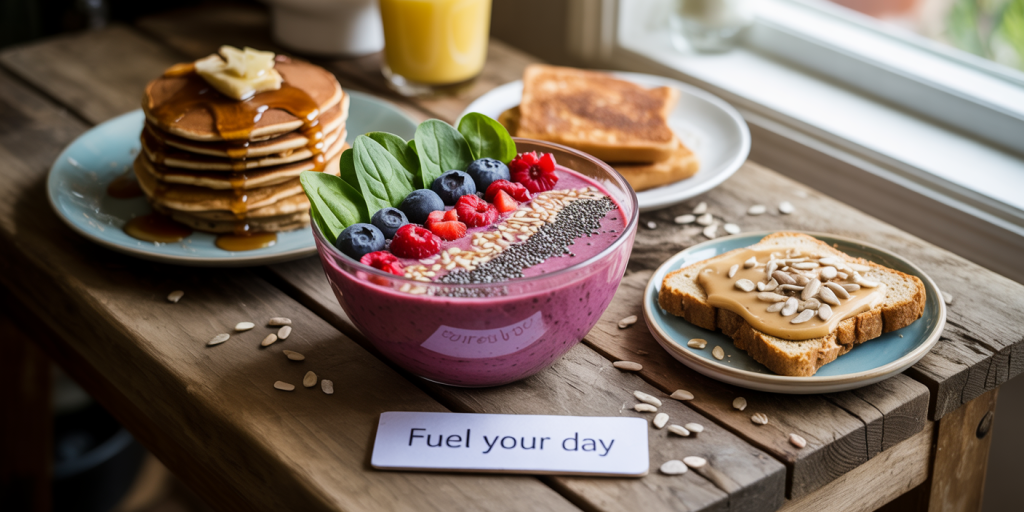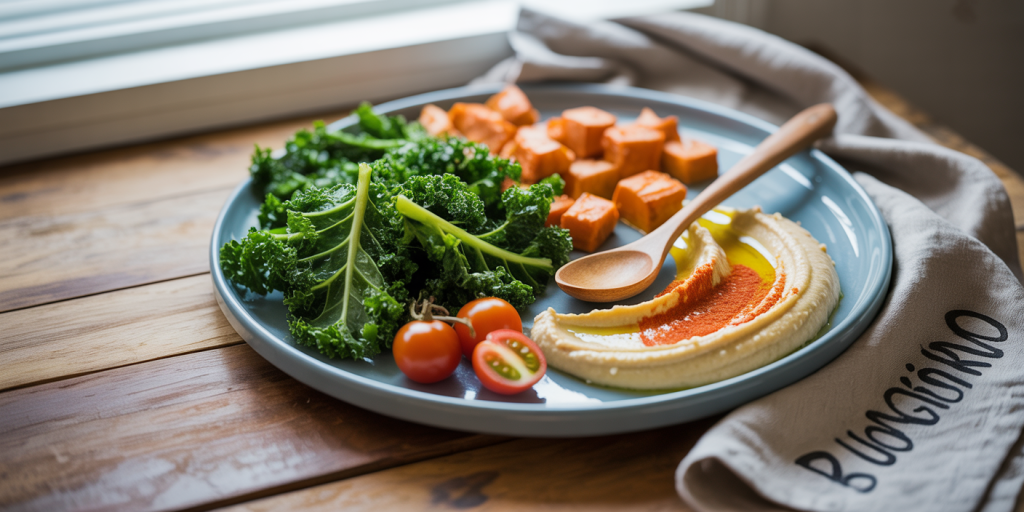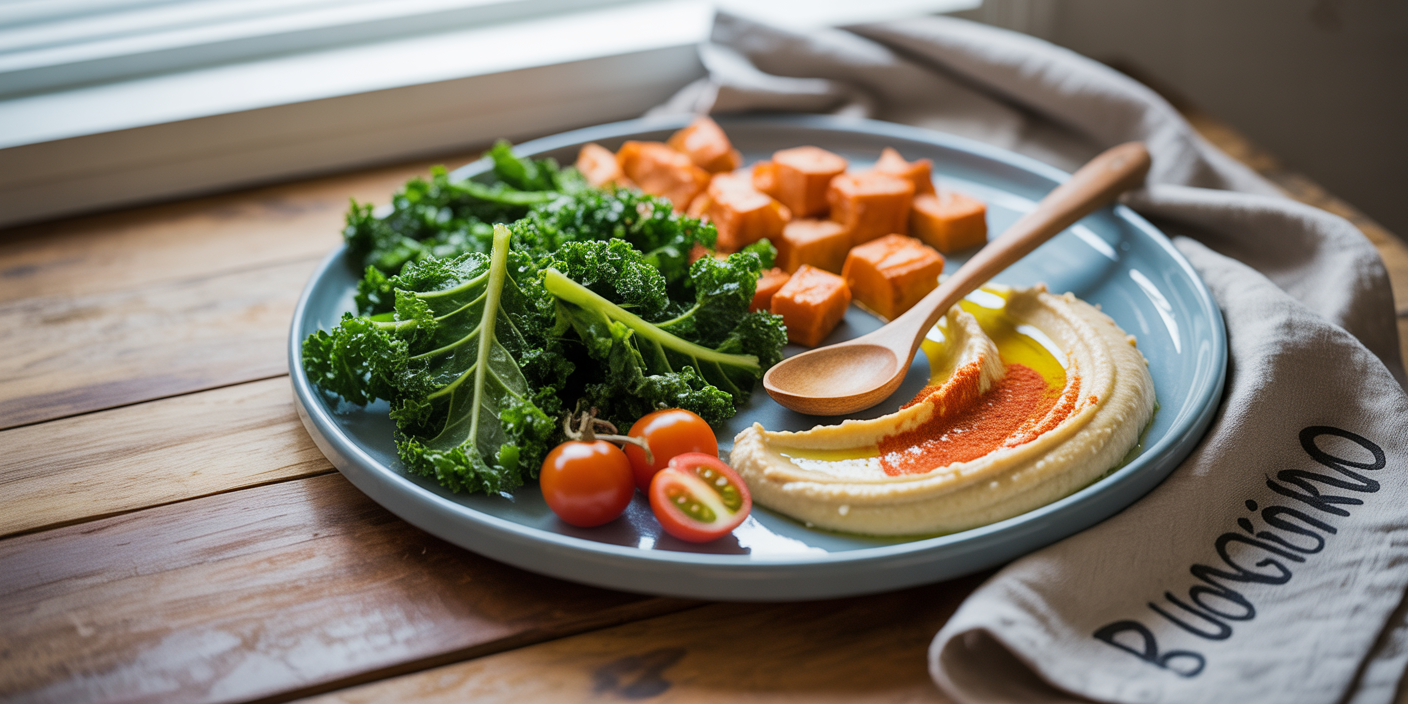Breakfast is often hailed as the most important meal of the day, providing vital energy and nutrients to kickstart your morning. However, many traditional breakfast meals heavily rely on eggs, such as scrambled eggs, omelets, and eggs Benedict. While eggs are rich in protein and other essential nutrients, diversifying breakfast options can reap several benefits, including catering to dietary restrictions, avoiding egg allergies, and simply adding culinary variety. This article explores a range of delicious and nutritious no-egg breakfast ideas to help you break free from the conventional morning routine.
Rethinking Breakfast: The Need for Egg-Free Options
Eggs are an excellent source of protein, vitamins (such as B12 and D), and minerals like selenium. According to the USDA, one large egg contains around 6 grams of protein and just 70 calories, making it a popular choice for a balanced breakfast. However, eggs can also pose challenges: some individuals have allergies or intolerances to eggs, while others avoid eggs due to cholesterol concerns or dietary preferences, such as veganism.
For example, in the United States, approximately 1.3% of children under 18 have an egg allergy, making it the second most common childhood food allergy after peanuts (Source: AAAAI). Additionally, plant-based diets have surged in popularity by nearly 300% between 2004 and 2017, according to a study published in *Nutrients* (2019). These trends underscore the relevance of egg-free breakfast alternatives for a broader audience.
Moreover, incorporating a diverse set of breakfast options can help prevent monotony and boost overall meal satisfaction. By exploring varied ingredients and flavors, people can create balanced meals that sustain energy, support metabolic health, and stimulate enjoyment.
Nutritious and Quick No-Egg Smoothies
Smoothies are an excellent egg-free breakfast choice, combining convenience with nutrition. They offer flexibility in ingredients, allowing one to choose fruits, vegetables, nuts, and seeds that align with personal taste and dietary needs. A smoothie can range from a simple banana and spinach blend to a complex mixture containing protein powder, flaxseeds, and avocado.
Practical example: A protein-packed smoothie using almond milk, frozen berries, spinach, chia seeds, and vegan protein powder can provide over 20 grams of protein and abundant antioxidants within five minutes. This kind of breakfast is perfect for busy mornings or for outdoor enthusiasts who need portable options.
Smoothies are also beneficial for people with chewing difficulties or digestive issues, thanks to their smooth texture. Research published in the *Journal of Food Science and Technology* highlights that smoothies can aid in better nutrient absorption due to the mechanical breakdown of plant cell walls during blending. However, it’s important to balance carbohydrates, fats, and proteins to avoid sugar spikes. Including healthy fats like nut butters or seeds can moderate glycemic response and promote satiety.
Hearty Grain-Based Breakfasts Without Eggs
Grain-based breakfasts have long been breakfast staples worldwide and often can be prepared without eggs while still maintaining nutritional density. Think oatmeal, quinoa porridge, or buckwheat pancakes made without eggs.

Oatmeal, rich in beta-glucan fiber, assists in lowering LDL cholesterol and each serving provides steady energy release. For a twist, savory oatmeal can be garnished with sautéed mushrooms, nuts, and avocado slices, catering to those who prefer a less sweet breakfast. Quinoa, often referred to as a “super grain,” offers a complete protein profile, making it particularly valuable for vegetarians and vegans.
Buckwheat pancakes are a nutritious alternative to traditional wheat flour pancakes. Using ground flaxseeds or chia seeds soaked in water as egg substitutes can bind ingredients well and add omega-3 fatty acids. According to a 2022 *Food Science & Nutrition* study, these seed gels also enhance the texture and nutritional content of baked goods.
The benefits of grain-based breakfasts include sustained energy release, fiber intake for gut health, and versatility in flavors. They are often economical and can be prepared in bulk for the week ahead, saving time during busy mornings.
Satisfying Legume and Nut-Based Breakfast Ideas
Legumes and nuts are powerhouses of plant-based protein, fiber, and healthy fats, making them excellent components for egg-free breakfasts. From chickpea pancakes (socca) to nut butter toasts, these foods boost nutrient intake and provide sustained energy.
Chickpea-based recipes have gained popularity due to their high protein content and unique flavor. Socca, a traditional Mediterranean flatbread made from chickpea flour, water, and olive oil, cooks quickly and pairs well with various toppings—from tomatoes and olives to herbs and vegan cheese. Chickpea flour can also be used to create scrambled tofu (tofu bhurji style) that mimics eggs in texture without using any egg products.
Nut butters, particularly those from almonds, cashews, or peanuts, offer a quick and easy breakfast option when spread on whole-grain bread or paired with fruits like apples or bananas. A tablespoon of peanut butter provides roughly 8 grams of protein and healthy monounsaturated fats, which support heart health according to the American Heart Association (AHA).
These ingredients are especially helpful for people seeking allergen-friendly, dairy-free, and egg-free breakfast options while maintaining protein adequacy.
Vegetable-Forward Breakfast Plates for Enhanced Nutrition
Shifting focus towards vegetables for breakfast introduces low-calorie but nutrient-dense options that can invigorate the palate. Sautéed greens, roasted root vegetables, and vegetable stir-fries can provide fiber, vitamins, and minerals often overlooked in traditional egg-heavy breakfasts.
One real-world example is a Mediterranean-inspired breakfast plate combining roasted sweet potatoes, cherry tomatoes, sautéed kale, and hummus. This variety enhances the meal’s micronutrient profile by incorporating vitamin A, C, and iron while offering complex carbohydrates.

Vegetables also provide antioxidants and phytochemicals linked to reduced inflammation and chronic disease risk. A 2020 review published in *Nutrients* demonstrated that increased vegetable consumption is associated with a lower incidence of cardiovascular disease and type 2 diabetes.
For individuals aiming to reduce egg consumption, vegetable-forward breakfasts offer flexibility to experiment with international cuisines—for example, Japanese miso soup with tofu and wakame, or Middle Eastern shakshuka made without eggs (simply extra vegetables tossed in tomato sauce and spices).
Comparative Table: Nutrient Content of Popular No-Egg Breakfasts vs. Egg-Based Breakfasts
| Breakfast Type | Protein (grams) | Fiber (grams) | Calories | Key Micronutrients | Preparation Time |
|---|---|---|---|---|---|
| Traditional scrambled eggs (2 eggs) | 12 | 0 | 140 | Vitamin B12, selenium | 5 min |
| Chickpea pancake (1 serving) | 10 | 4 | 200 | Iron, magnesium | 10 min |
| Oatmeal with nuts & seeds (1 bowl) | 8 | 6 | 250 | Manganese, zinc, vitamin E | 5-7 min |
| Berry & spinach smoothie (1 glass) | 20 (with protein powder) | 5 | 300 | Vitamin C, potassium | 5 min |
| Nut butter on whole-grain toast (1 serving) | 10 | 5 | 280 | Vitamin E, healthy fats | 3 min |
| Vegetable stir-fry with tofu | 15 | 6 | 220 | Calcium, iron, antioxidants | 15 min |
This table illustrates that several no-egg breakfast options can match or exceed eggs in protein content, while also delivering greater fiber and diverse micronutrients. Preparation times vary, but many choices remain convenient for morning routines.
Prospective Trends and Future Innovations in Egg-Free Breakfasts
Looking ahead, meal innovation and dietary trends are reshaping the breakfast landscape. The rise of plant-based products and culinary creativity open doors for more egg-free breakfast offerings in homes, restaurants, and commercial settings.
There is an increasing focus on sustainable and allergen-friendly foods. According to a 2023 report from the Good Food Institute, plant-based meat and protein alternatives market share grew by over 20% annually in the past five years. This includes innovative ingredients like mung bean protein and aquafaba (chickpea water) that mimic egg functions in cooking.

In addition, advances in food technology are enabling development of egg analogs free from cholesterol and animal components, appealing to health-conscious and ethical consumers alike. Companies such as JUST Egg have commercialized mung bean protein “eggs” that behave similarly to chicken eggs in texture and cooking.
Digital nutrition platforms and personalized meal planning apps further support consumers in managing allergens and dietary preferences by recommending diverse, balanced breakfasts without eggs. Integration with grocery delivery services allows easy access to specialty ingredients like chickpea flour, dairy-free yogurts, and seed butters.
Furthermore, educational initiatives on meal preparation are encouraging people to diversify their morning meals and reduce overreliance on a few staple foods. This diversification may improve nutritional status at the population level and reduce food monotony-related meal skipping, which affects up to 20% of adults, according to a 2021 *Appetite* journal study.
Continued research into plant protein digestibility, bioavailability, and sensory characteristics will refine egg-free alternatives, ensuring they meet both health and sensory expectations.

Deixe um comentário